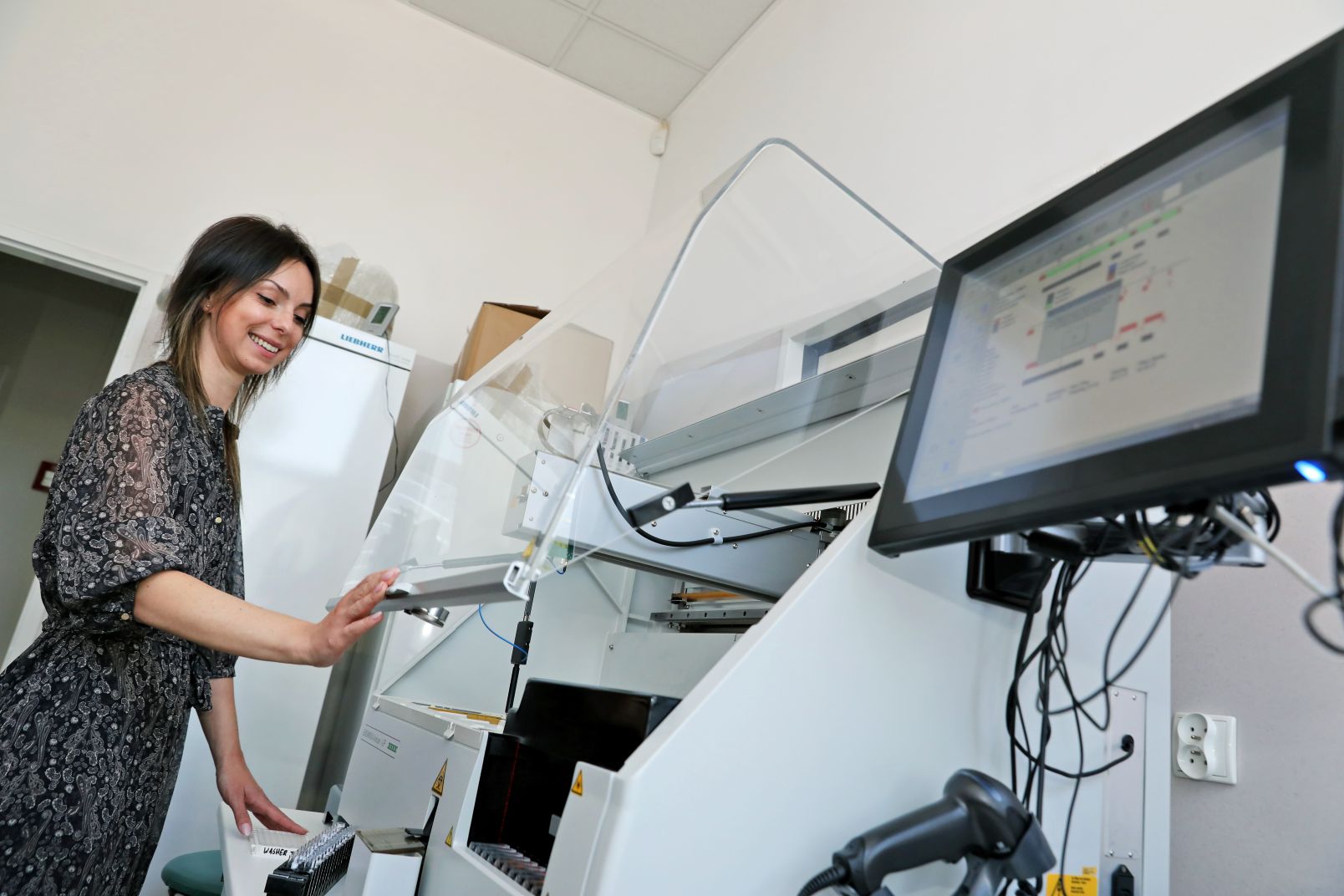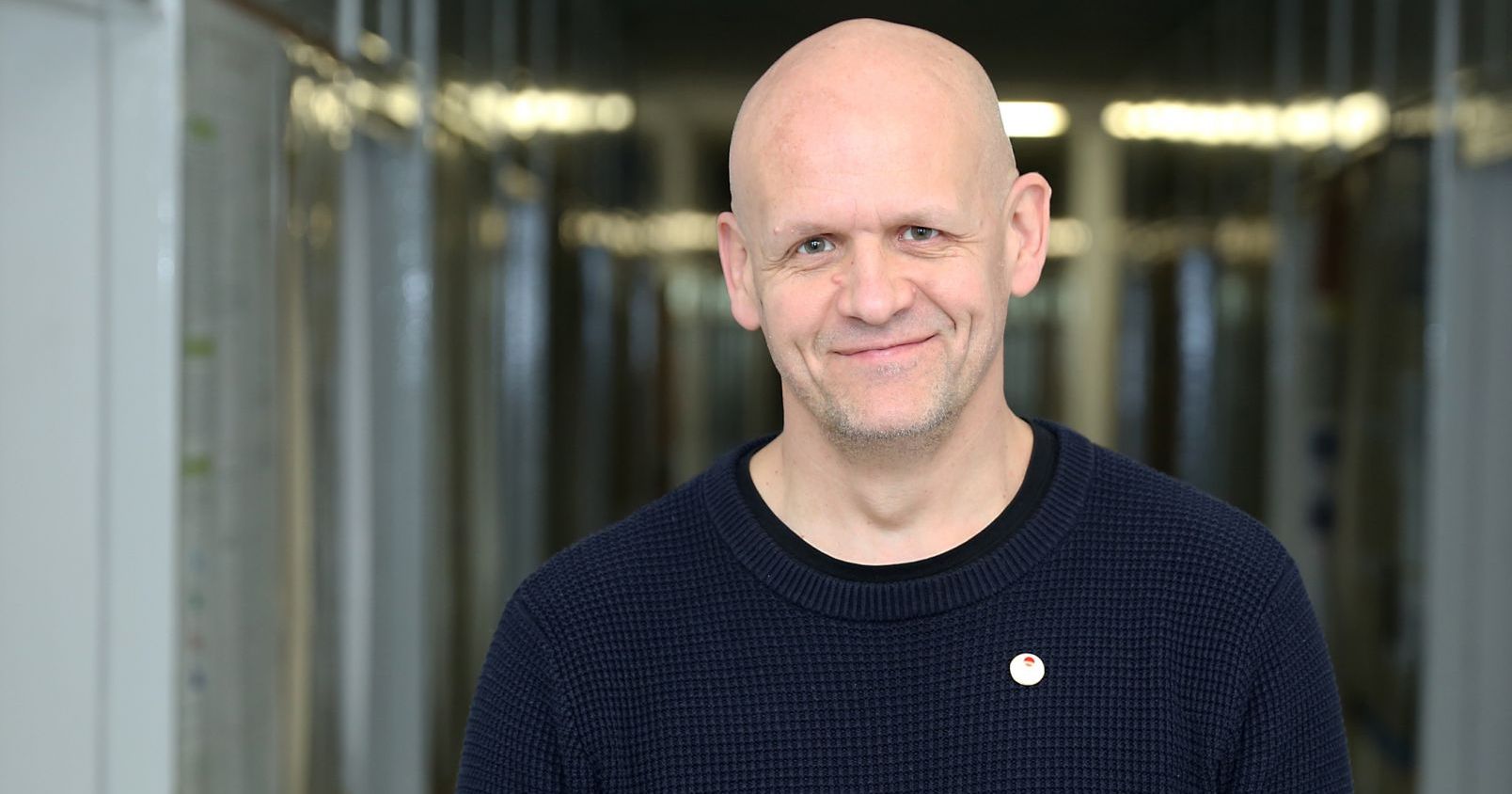Immunological memory in fight against COVID-19
After two doses of the vaccine, most people produce antibodies against SARS-CoV-2. Among convalescents, the first dose of the vaccine functions analogically to the second one among those who have never fallen ill before – prove NCU scientists.
The team supervised by professor Dr. habil. Andrzej Tretyn from the Faculty of Biological and Veterinary Sciences NCU runs research on selected parameters of immunological response among people vaccinated against SARS-CoV-2 and convalescents. The results of the pioneer research conducted in February and March 2021 among 477 people who were ill with COVID-19 and/or were vaccinated with Pfizer/BioNTech were published in magazine Cells in the article "Differences in the Concentration of Anti-SARS-CoV-2 IgG Antibodies Post-COVID-19 Recovery or Post-Vaccination".
We began our research shortly after the vaccination program was launched in Poland - explains professor Andrzej Tretyn. Due to the availability of the specimen during the vaccination of group “zero", we firstly analyzed blood samples taken from people who were vaccinated with mRNA Comirnaty.

fot. Andrzej Romański
Among the volunteers who took part in the experiment, there were 362 women and 115 men, aged 18 – 93. The results were analyzed in a few subgroups:
- healthy and non-vaccinated,
- non-vaccinated, with confirmed asymptomatic SARS-CoV-2 infection,
- non-vaccinated, after symptomatic infection,
- two or three weeks after being vaccinated with the first dose, and people who had not fallen ill with COVID-19,
- from one to five weeks after the intake of the second dose, and people who had not fallen ill before with COVID-19,
- vaccinated with one or two doses, with confirmed infection.
The scientists focused on the analysis of selected elements of humoral and immunological response. Within the research, they conducted quantity tests which allowed to precisely evaluate the concentration of antibodies with neutralizing capacity, directed against the antigen S1 of SARS-CoV-2, and tests which enabled to estimate the activity of T-cells reacting to the pathogen through detecting gamma interferon, a significant signaling particle of the immune system.
- IgG antibodies are a crucial marker of immunity, and their presence indicates that a reaction in the immune system took place. They are not, however, the major power of the immunity – explains Dr. Joanna Szczepanek. – It is necessary to remember that even a low level of antibodies can effectively protect against an infection.

fot. Andrzej Romański
Antibodies are a key element in recognizing and neutralizing viruses which have got through to cells. In prevention of heavy forms of COVID-19, after getting of the virus into cells, the crucial and key meaning is the cell response in which specific T lymphocytes take part and which secrete cytokines.
The scientists noticed a large differentiation in immunological responses. The concentration of IgG anti-SARS-CoV-2 antibodies among the people examined ranged from 0 to 38 400 BAU/ml (BAU means Binding Affinity Units and is a unit to mark the antibodies anti-SARS-CoV-2 as recommended by WHO).
The results of the research published so far confirm that the protection in natural infection with SARS-CoV-2 is between 81% and 100%. – It begins on the 14th day after contagion and persists from five to eight months – explain the NCU biologists.

On the basis of their own analyses, the researchers have observed that in some people who went through COVID-19 asymptomatically, antibodies are not detected. A relatively low concentration of IgG antibodies was detected among those who had gone through the infection with very few symptoms, marked after a few weeks since positive tests, which may indicate a high risk of re-infection. The scientists from Toruń claim that people who fell ill with COVID-19 should be vaccinated in order to strengthen their immunity. On the basis of the research, it can also be conducted that the humoral immunological response caused by natural infection among the convalescents is indeed strengthened after the intake of a single dose of the vaccine.
After two doses of the vaccine, most people produce antibodies with neutralizing capacity, and the presence of activated lymphocytes is detected in their blood, which confirms the effectiveness of mRNA vaccine in initiating the immunological response on the level of 95%. Among the post COVID-19 patients, in the third week since vaccination the amount of IgG antibodies was 11 times higher than in non-vaccinated convalescents.
Those patients are marked with the highest levels of IgG antibodies anti-SARS-CoV-2 both after the injection of the first and the second dose of the vaccine – explains prof. Tretyn. - Among the convalescents, however, the first dose of the vaccine functions analogically to the second one in patients who have never fallen ill with COVID-19. Our current observations show that providing convalescents with the second dose of the vaccine does not have any significant impact on the very level of the antibodies. Yet, it may affect the durability of the immunological response.
The researchers have not confirmed any significant correlation between the results and the gender of patients, however, they have marked slightly lower levels of concentration of IgG anti-SARS-CoV-2 among men than women in all the subgroups analyzed. The strongest immunological response has been observed in people aged 35-55. Among patients older than 65 years of age a lower concentration of antibodies has been marked, and a strong difference is noticeable among those after 80 years of age and among patients with chronic diseases, especially diabetes, thyroid diseases and inflammatory diseases. People without any immunological response constitute 5%. – In our opinion, it is necessary to implement special serological supervision of people over 60 years of age and/or of those suffering from chronic diseases and comorbid conditions. It is also necessary to consider the application of booster doses among these patients in order to guarantee appropriate immunological protection against the infection – says prof. Tretyn.
We still do not have enough information about the post-vaccination response. Both after the infection and in the effect of vaccination, there should remain in the organism enough memory cells, which are capable of producing a large amount of antibodies in a short time after being in contact with the same pathogen.
- The immunological memory, which is conditioned by the presence of B Lymphocites, as well as T CD8+ cells (cyto-toxic) and T CD4+ cells (complimentary), is fundamental for the duration of immunity after non-symptomatic and symptomatic infection with SARS-CoV-2 or acquired after vaccination – explains Dr. Szczepanek. Both in the effect of natural infection and vaccination, the cell response should be long-lasting. In the research which was participated by convalescent post -SARS-CoV-2(-1) patients, specific antibodies were detected a few years after the infection, whereas T Lymphocites which are reactive to the antibodies of a virus were detected even after a longer period of time (more than 10 years). We still do not know how long-lasting the immunity will be after SARS-CoV-2 infection, not to mention the immunity acquired after vaccination.

fot. Andrzej Romański
The monitoring of the post-vaccination response of the immune system is one of the key phases in examining the effectiveness of vaccines. Therefore, its crucial element are regular measurements of the level of antibodies among selected patients, due to which we are learning the dynamics of this response. – In the first turn, we involved into the examination eight persons vaccinated with Pfizer/BioNTech – answers from the faculty of Biological and Veterinary Sciences NCU. – Since May, also parsons vaccinated with Oxford/AstraZeneca have been taking part in the examination. At the moment, the participants undergo regular monthly measurements of the concentration of IgG anti-SARS-CoV-2, and every two or three months they have their cell response tested. On the basis of the results acquired in the first group, we have observed that the highest concentration of antibodies is marked in the second or third week after the injection of the second dose, and already after four weeks since vaccination the level of antibodies decreases below the level obtained before the intake of the second dose.

- It is the end of August, so for many of us it is the eight month since vaccination – says prof. Tretyn, who has been participating in the experiment since January . Among us, there are those in whose blood samples the antibodies as well as T Limphocites are not detectable any longer. Therefore, it seems that the third dose of the vaccine is unavoidable. At the moment, the third dose is not available in Poland yet. We want to make a mindful decision about the third injection, based on the knowledge about our immunological status.
In the research conducted among the NCU staff, the biologists also compare differences between different vaccines available in Poland. Data on this matter are still collected, and the results require a lot of work. Yet, it can be stated that the highest levels of antibodies are marked in the serum of people vaccinated with mRNA vaccines. In patients who have been vaccinated with vector vaccines, the immunological response occurs later. Presumably, one-dose of Johnson&Johnson vaccine is more effective in convalescents. Despite intensive scientific and clinical research it still remains unknown how long the specific antibodies will quarantee protection against the infection, and what ratio of antibodies ensures protection against heavy COVID-19.

Professor Andrzej Tretyn is the director of the grant :Evaluation of humoral and cell immunological response among NCU staff after SARS-CoV-2 infection or vaccination against COVID-19", conducted among the staff members of NCU and financed with NCU Rector's grant. Soon, the third admission will be launched among volunteers, who took part in the 1st and/or 2nd phase, whose blood samples will be collected to test the amount of antibodies. The members of professor Tretyn's team are also engaged in the project “Limiting the negative effects of COVID-19 through prevention and securing for medical staff", which is conducted among Health care staff of our voivodeship and which is probably the largest enterprise of this kind in Poland. The activities are conducted within Priority Axis 9 Supportive Society, Action 9.3 Development of health and social services, Sub-action 9.3.1 Development of health services. The project was prepared by the Council of Kujawsko-pomorskie Voivodeship. The partner in the project is NZOS Laboratory of Carcinoma Genetics, which the researchers closely cooperate with in the area of anti-covid actions.
 NCU News
NCU News






 Natural sciences
Natural sciences
